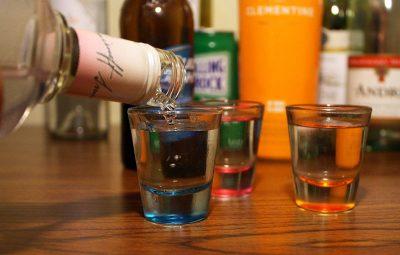
Massachusetts has the highest rate of underage alcohol use in the country: among people ages 12-20, nearly 29 percent had consumed alcohol and 20 percent had participated in binge drinking, according to research analyzed by the American Addiction Centers.
Nationwide, four of the five top states for underage alcohol consumption are in the Northeast. This includes Vermont with just over 25 percent, and Rhode Island and New Hampshire with about 23 percent each.
Data on alcohol consumption was taken from the Substance Abuse and Mental Health Services Administration’s 2016-17 National Survey on Drug Use and Health. Binge drinking was defined as having four or more drinks in one sitting, and survey respondents were asked to reference the previous 30 days.
Across the country, the survey found on an average day more than 245,000 young people consume alcohol and more than 150,800 drink excessively.
Dr. Mark Calarco, the American Addiction Centers’ national medical director for clinical diagnostics, wrote in an email young adults can become impaired by alcohol quickly as they lack experience and maturity with drinking.
In minors, Calarco wrote, alcohol can inhibit the normal function and development of the prefrontal cortex, which is the part of the brain associated with decision making and cognitive behavior. He advised young people to visualize the ramifications of their decisions to drink and consider the potential consequences.
“Minors and young college students can help themselves by developing the habit of stopping or pausing before engaging in risky behavior and thinking about the ‘what ifs,’” Calarco wrote. “If they can pause even for a moment, sometimes that’s enough for them to change their behavior.”
Matthew Hoffman, executive director of Boston Alcohol and Substance Abuse Programs, said alcohol education is important for students.
He said he thinks it is important to consider the reasons young people decide to drink because their decisions can be tied to social pressure.
“Everybody can remember the high school dance or whatever, everybody feels very awkward and shy and stuff,” Hoffman said. “And what they learned from their peers is that a drink or two will help them loosen up and be able to interact socially better.”
One way Hoffman suggested discouraging underage drinking is to have alcohol education be a part of the process of getting a driver’s license.
“I think that alcohol education should be a basic part of getting your driver’s license and that if people are involved in underage drinking, it should reflect in their ability to get a license,” he said. “So that’s a powerful tool to use to discourage the teenage drinking.”
Ian Lee, 28, of Roxbury, said he thinks the accessibility of fake IDs could be a reason that so many underage people are drinking.
“Maybe [there are] too many smart people here to help underage people to get fake IDs,” Lee said. “Schools and governments need to emphasize … laws of underage drinking.”
Lisa Witham, 54, of Salisbury, said she believes parents should emphasize the importance of safe drinking habits to their teenagers so they have role models to follow.
“Parents need to do their jobs,” Witham said. “The young teens need better role models.”
Zachary Pavini, 26, of Worcester, said he thinks the large population of students in Massachusetts could be a reason for the high levels of underage drinking.
“I think there are more colleges here than any other parts in the country, so that might be why,” Pavini said. “It’s a part of America’s university culture to drink while underage.”




















































































































